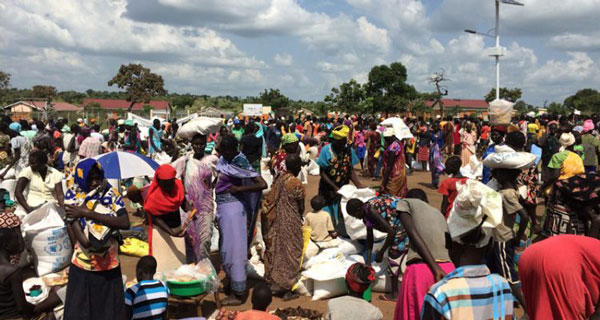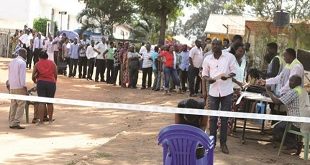
Why we need a more honest discussion on the Ugandan government’s portrayal as a global leader in refugee response
COMMENT | LUCY HOVIL | Uganda has been hailed internationally for its generosity towards refugees. Since 2013, the country has welcomed close to a million refugees from South Sudan.
Meanwhile in the global north, Europe’s response to the arrival of over one million asylum seekers has been to baton down their hatches even tighter, and the U.S. has slashed the number of refugees resettled to historic lows.
In this context, the Ugandan government has grasped an opportunity to present itself as a global leader in refugee response and a reliable partner of the international community.
Although Uganda’s policy has been laudable in many ways, its presentation as an unqualified success story obscures the complex political realities that have created Uganda’s current policy and which have, at times, blocked the translation of progressive commitments on paper into realities on the ground.
A new report published by International Refugee Rights Initiative explores these realities in historical context with a view to promoting robust debate and focusing policy makers on what is needed to allow the Ugandan model reach its full potential.
A real crisis
It is clear that Uganda’s positive model has, to a certain extent, been driven by political expediency in its interaction with the international community. While this is not necessarily bad, there are immediate and longer-term risks related to Uganda’s approach.
First, there is a danger that the promotion of progressive refugee policies may be confined to a rhetorical exercise. This is doubly problematic: not only does it promote policies that fail to deliver, but also creates a smoke-screen that squeezes out meaningful discussion about alternatives.
The gap between rhetoric and reality remains considerable. Despite the rhetoric about alternatives to camps, refugees lack full freedom of movement and live in what are essentially camps merely rebranded as local settlements. Humanitarian aid is still directed almost exclusively to these settlements, but their rebranding has impeded discussion of alternatives. Refugees who move to cities in Uganda continue to be largely excluded from support other than uncertain access to legal status.
Second, local integration, including access to citizenship – one of the U.N.’s three “durable solutions” to displacement – has been virtually abandoned. With opportunities for third country resettlement limited, this has increasingly left voluntary repatriation the only solution seriously considered. Where on-going conflict makes that unlikely, as in the Democratic Republic of Congo and South Sudan, refugees are left in limbo.
Finally, the international focus of policy conversations risks leaving the voices of host communities, local authorities and refugees themselves unheard. Many Ugandans and refugees have neither the economic resources nor political leverage to influence the policies meant to benefit them. There is a risk that efforts will be focussed on procedural changes at high levels of government, with little qualitative change on the ground.
Thinking outside the settlement
To mitigate these risks and help sustain the best aspects of Uganda’s refugee policies, the report urges us to face a few hard realities.
The international community needs to deliver on its promises of significant financial support; otherwise, promised political and economic benefits are unlikely to materialise and could make the whole system collapse like a house of cards.
Given the protracted nature of the conflicts creating Uganda’s refugees, repatriation cannot remain the only serious option. Uganda must take local integration seriously and international partners must walk the walk of “responsibility sharing” by both aiding integration robustly and increasing the number of resettlement places offered.
Local communities, most of whom are in historically marginalised regions of Uganda, must be consulted in a more meaningful and systematic way. This requires a more nuanced understanding of who “host communities” are and who represents them. Presuming an innate social notion of “hospitality” without creating the conditions for genuine buy-in is likely to lead to serious tensions. Conversely, the presence of refugees in these regions, along with the international spotlight, presents an opportunity to both catalyse economic development, and increase engagement of marginalised communities.
Finally, while financial aid is important, it cannot replace rigorous policy making. The myth of the “local settlement” needs to be debunked and recognised for what it is: the isolation of refugees and the utilisation of humanitarian assistance to keep them dependent on aid. In the long term, refugees can be more efficiently assisted to self-settle and achieve economic independence.
While Uganda’s approach has rightly been applauded, there is need for braver and more robust discussion of the challenges if this is truly to become a viable global model.
****
Lucy Hovil is a Senior Researcher with International Refugee Rights Initiative
lucy.hovil@refugee-rights.org
 The Independent Uganda: You get the Truth we Pay the Price
The Independent Uganda: You get the Truth we Pay the Price


